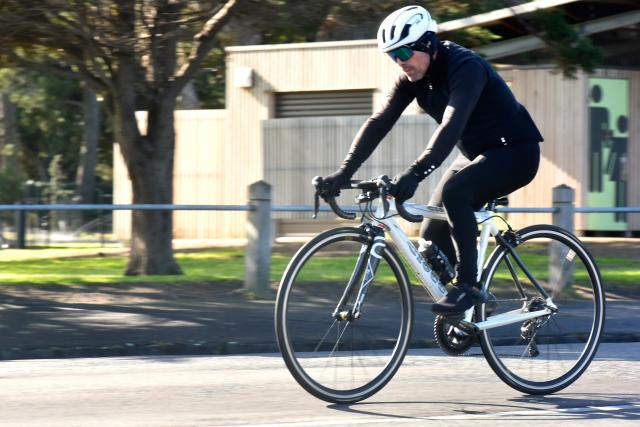The City of Greater Geelong (CoGG) Council has decided to not award a contract for the southern link of its sometimes controversial Principal Bicycle Network after receiving community feedback.
The southern link, which will connect central Geelong and Waurn Ponds, was proposed to include a section on High Street in Belmont.
However, concerns from High Street traders and other community feedback caused Council to defer any further works.
Council instead requested CoGG CEO Kaarina Phyland investigate a strategic review of the Principal Bicycle Network.
Key stakeholders, including the Department of Transport and TAC, will be asked to assist with the review, which will also seek further feedback from the community.
At the meeting councillors expressed general support for the principle of more bike lanes in the City, but most acknowledged the Council did not enjoy widespread confidence in the community.
Councillor Ron Nelson emphasised the need to ensure the new bike lanes in the southern link cycling corridor met the expectations of residents.
“I want to make sure that when we build bike lanes, they’re safe for riders, they’re safe for drivers, and they’re safe for pedestrians,” Cr Nelson said.
“This is our chance to pause the project, reset a strategic direction and get the right bike lanes for our town.”
As the Geelong Independent reported in July, cyclists, motorists and traders alike have criticised aspects of the City’s Building Better Bike Connections bike lanes in central Geelong since 2019.
The major points of contention have been the lanes’ effects on traders – particularly during construction periods – and the safety of cyclists using them.
In July a concerned cyclist told the Independent that many bike riders were “quite terrified every time they use the lanes”.
Deputy Mayor Anthony Aitken acknowledged existing discontent within sections of the community over the bike lanes.
“It’s a real challenge trying to retrofit roads for bike lanes so it’s appropriate that we have a fresh look at the principal bike network,” he said.
“We want to deliver a network that doesn’t create division in our community, allows cyclists to safely ride to destinations like shopping areas and key employment precincts while minimising impacts on local traffic.”









